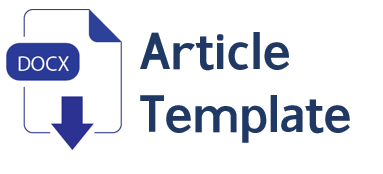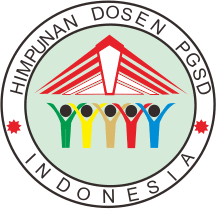PENGARUH MODEL PROBLEM BASED LEARNING TERHADAP KEMAMPUAN REPRESENTASI MATEMATIS SISWA DAN ADVERSITY QUOTIENT
Abstract
Keywords
Full Text:
PDFReferences
Fauzi, Kms Muhammad Amin., Maryunah., & Edi, S. (2019). Peningkatan Kemampuan Komunikasi Matematis dan Kemandirian Belajar Siswa dengan Menggunakan Model Pembelajaran Reciprocal Teaching. Jurnal Tematik. Vol (9): 234245 (Online, (https://scholar.google.co.id/citations?use r=GZGhcIAAAAAJ&hl=id diakses 21 Januari 2020)
Hosnan. (2014). Pendekatan Saintifik dan Kontekstual dalam Pembelajaran Abad 21. Bogor: Ghalia Indonesia.
Lambertus, B.A., dkk. (2014). Developing Skills Resolution Mathematical Primary School Students. internationalJournal of Education and Research. Vol 2. (10) :601-614.
Nurlaeli., Anton, N., & Eti, D. W. (2018). Pengaruh Model Pembelajaran Problem Based Learning Terhadap Kemampuan Berpikir Kritis Matematis Siswa Ditinjau dari Adversity Quotient. Fibonacci. Vol 4 (2): 145-152
Paul G.Stoltz. (2000). Adversity Quotient Mengubah Hambatan Menjadi Peluang. Jakarta: Grasindo.
Putri, H. E. 2015. The Influence of Concrete Pictorial Abstract (CPA) Approach to the Mathematical Representation Ability Achievement of the Pre Service Teachers at Elementary School. International Journal of Education and Research. Vol 3 No. 1
Sabirin, M. (2014). Representasi dalam Pembelajaran Matematika. JPM IAIN. Antasari Banjarmasin. Vol 1(2): 33-34.
Sani, R. A. (2014). Pembelajaran Saintifik untuk Implementasi Kurikulum 2013. Jakarta: Bumi Aksara.
Sanjaya, W. (2014). Strategi Pembelajaran Berorientasi Standar Proses Pendidikan. Jakarta: Kencana Prenada Media.
Siregar, Eko Febri Syahputra ; Sari, S. P. (2020). Pengaruh Model Pair Checks Terhadap Komunikasi Interpersonal Mahasiswa PGSD FKIP UMSU. Jurnal Tematik, 10(2), 6973.
Stoltz, G. P. (2000). Adversity Quotient Mengubah Hambatan Menjadi Peluang. Jakarta: PT. Grasindo.
Yudhanegara, M. R., & Karunia, E. L. (2014). Meningkatkan Kemampuan Representasi Beragam Matematis Siswa Melalui Pembelajaran Berbasis Masalah Terbuka. Jurnal Ilmiah Solusi. Vol 1 (3) 76-85.
DOI: https://doi.org/10.30596/ejoes.v2i1.6613
Refbacks
- There are currently no refbacks.
(EJOES) Educational Journal of Elementary School
Department of Elementary School Teacher Educational, University of Muhammadiya Sumatera UtaraKampus 1 FKIP UMSU
Jl. Kapten Muchtar Basri No.3, Glugur Darat II,Medan
Sumatera Utara-20238
E-mail: ejoes@umsu.ac.id

Educational Journal of Elementary School (EJoES) is licensed under a Creative Commons Attribution-ShareAlike 4.0 International License








